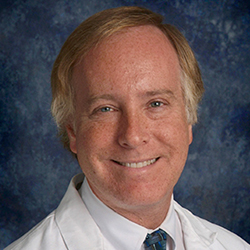University of Pennsylvania

Don Siegel, PhD, MD, is a professor of pathology and laboratory medicine and founding director of the Division of Transfusion Medicine and Therapeutic Pathology at the University of Pennsylvania in Philadelphia. He is also the medical director of the blood bank, apheresis unit, HSC lab, and an ACGME-accredited transfusion medicine fellowship program.
Siegel directs the University of Pennsylvania’s Center for Advanced Cellular Therapies, which has manufactured more than 3,000 cell products, including the first genetically modified cell therapy product approved by the FDA and the first-in-human use of CRISPR-edited cells.
Siegel’s laboratory has been funded by the NIH in the areas of immunohematology, hemostasis/thrombosis, autoimmunity and oncology since 1992. His laboratory focuses on the discovery of recombinant antibodies relevant to transfusion medicine, benign hematology, infectious diseases and oncology, particularly for use in the design of targeted therapies such as CAR T-cells.
Siegel has been recognized with AABB’s RISE Award, the Dale E. Smith Memorial Award, the Tibor Greenwalt Memorial Award and Lectureship, and has been inducted into the AABB Foundation Hall of Fame. He has also received the Francis S. Morrison Award and the Lecturer Award from the American Society for Apheresis. For contributions to clinical care, Siegel was elected to the first class of the University of Pennsylvania Medicine’s Academy of Master Clinicians. In 2023 and 2024, his apheresis unit was recognized with the national Press Ganey Pinnacle of Excellence Human Experience Award for Outpatient Practices. For roles in education, Siegel was the recipient of the Peter C. Nowell Teaching Award, the Leonard Berwick Memorial Teaching Award, and the Christian R. and Mary F. Lindback Foundation Award for Distinguished Teaching.
Siegel received an undergraduate degree in biophysics from Brown University, a PhD in biophysics from Harvard University, and a medical degree from the University of Pennsylvania. He completed a residency in clinical pathology and a fellowship in transfusion medicine at the University of Pennsylvania before joining as a member of the faculty.